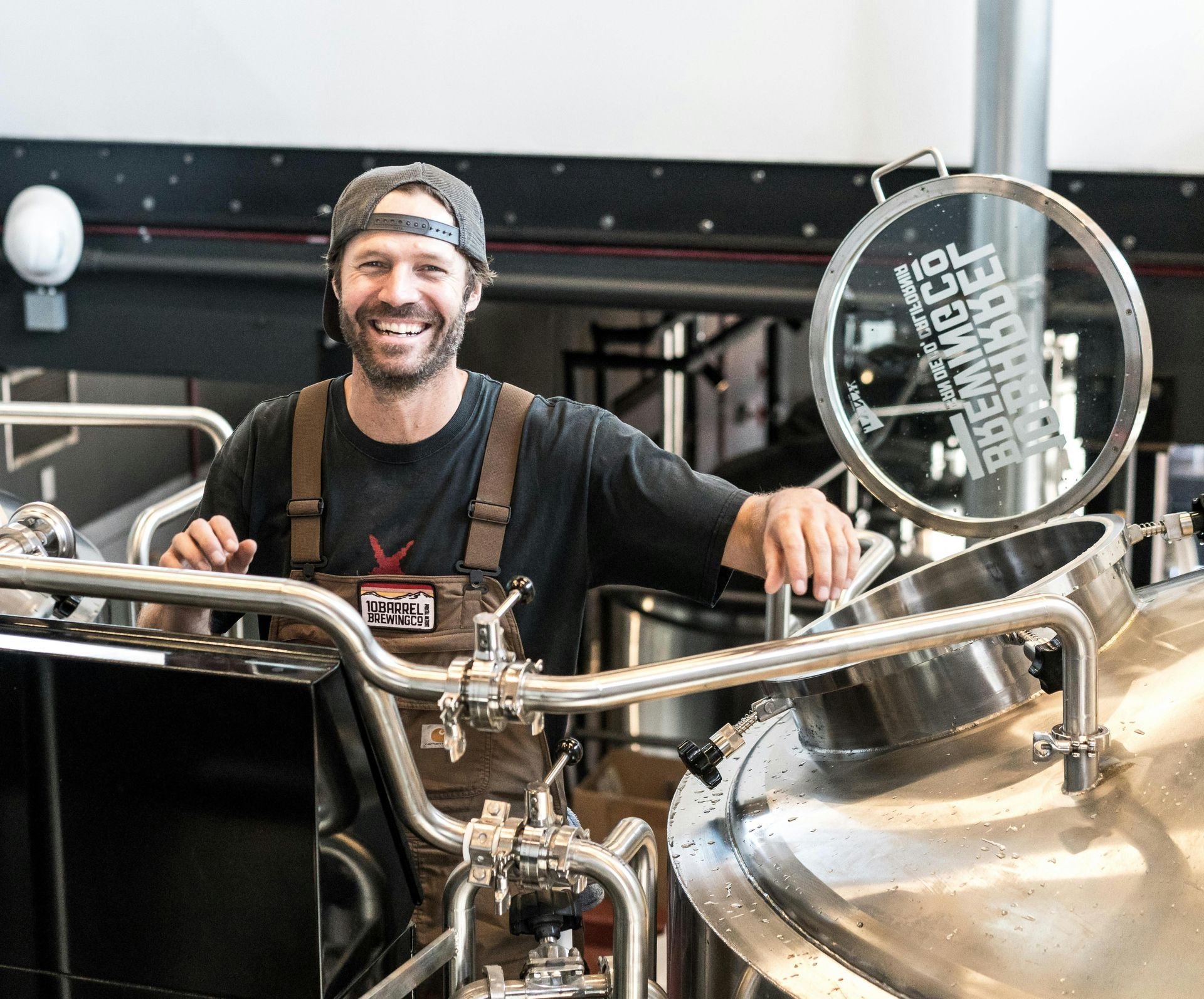7 Must-Know Tax Tips for Mechanics Running Their Own Shop
This guide is by Skyways Accountants Ipswich. Just contact us if you need accountancy help.
Most mechanics work hard, long hours. Whether you're running your own shop or taking jobs as a contractor, you’re hands-on all day. But when tax time rolls around, many mechanics miss out on hundreds or even thousands in potential deductions.
A lot of this comes down to not knowing what you can claim, or not having the time to stay on top of receipts, logs, and updates from the Australian Taxation Office.
As experienced accountants for mechanics, we’ve seen it firsthand, especially in Brisbane and across regional shops.
The following tax tips for mechanics are clear, legal, and practical. They’ve helped many self-employed mechanics, mobile techs, and shop owners reduce taxable income and avoid tax headaches.
Let’s break it down.
1. Keep Track of All Work-Related Expenses
What counts as a business expense for mechanics
Anything you buy or pay for that directly helps you do your job can be a business expense. This includes:
- Tools and equipment
- Protective clothing and uniforms
- Business-related vehicle expenses
- Licensing and insurance
- Software and training
Commonly missed write-offs
Many mechanics forget to claim everyday purchases like:
- Cleaning rags and hand cleaner
- Safety gear (gloves, goggles, steel caps)
- Sun protection (hats, sunblock, sun-safe glasses)
- Self-education costs (automotive repair courses, refrigeration testing equipment)
- Tool storage (tool chests, wall hangers)
Best ways to track expenses daily
Set up a system.
- Use a simple app like the
Gotax Deduction Grabber App
- Take photos of all
receipts (paper fades fast)
- Use a notebook or diary to log daily purchases
- Keep expenses separate from personal spending
2. Deduct Tools and Equipment Correctly
How tool deductions work
Tools under $300 can usually be claimed in full. Over $300? You may need to depreciate them over a few years using ATO guidelines.
What qualifies and what doesn’t
You can claim:
- Tools used for business (sockets, jacks, diagnostic devices)
- Safety equipment (ear protection, gloves, steel caps)
- Second-hand tools, if you have a receipt
You can't claim:
- Tools used only for personal use
- Home tools not used for paid work
Why saving receipts matters
Without receipts, you can’t claim. Keep paper or digital records of every purchase. The ATO may ask for proof, and bank statements alone aren’t enough.
Need help categorising your tools and depreciation? Skyways Accountants are experienced accountants for mechanics in Brisbane, making sure your tools and equipment claims are done right. Call us today at 0400 348 482.
3. Claim Mileage and Vehicle Costs
Standard mileage vs. actual expenses
Mechanics can claim car costs using:
- The cents per kilometre method (up to 5,000 business kms)
- The logbook method, where you record business use % over 12 weeks and claim actual vehicle costs
What counts as business driving
- Travel to customers (for mobile techs)
- Trips to suppliers for parts or tools
- Attending training or trade shows
- Business errands, like banking
Easy apps to log mileage
Use tools like:
- Gotax Mileage Tracker
- ATO myDeductions app
- A paper logbook with odometer readings, dates, and reasons
4. Know What You Can Write Off in Your Garage or Shop
Home office vs. dedicated shop space
If you work from a home garage or a dedicated shed, you may be able to claim home office expenses.
Use the business-use percentage to figure out how much of the below can be deducted:
- Electricity
- Internet
- Rent
- Water
- Repairs
Utility bills, rent, repairs
Keep copies of all invoices. If your shop is rented, you can claim rent. If you own the space, you may be able to claim maintenance or repairs (but not the building itself).
Red flags to avoid
- Don’t overclaim business use
- Don’t claim the entire rent or electricity bill unless 100% used for work
- Keep home and work costs separate
5. Don’t Forget About Insurance and Licensing Fees
What you can claim
- Public liability insurance
- Income protection insurance (if not through super)
- Trade licences and renewal fees
- Machinery Operation Licence
- Union fees
Why these are deductible
They’re costs related to earning your business income. But they're often overlooked because they get paid once or twice a year and aren’t top of mind at tax time.
How to stay organised
- Store all insurance and licensing documents in one folder
- Set calendar reminders for renewals
- Add recurring costs to your expense tracker
6. Understand Self-Employment Taxes
What you owe beyond income tax
As a self-employed mechanic, you’re responsible for:
- Paying your own super (optional but smart)
- Lodging BAS if registered for GST
- Paying quarterly PAYG tax instalments
The ATO estimates your tax and sends PAYG installment summaries. Pay each quarter to avoid surprises.
Track:
- Business income
- Business expenses
- Any interest earned
Keep a separate tax savings account. Deposit 20–30% of each job’s income. Avoid the stress that comes with tax time.
7. Choose Accountants Who Specialise in Mechanics
Why industry-specific knowledge matters
Not all accountants understand the day-to-day of running an auto repair business. Mechanics face unique tax issues, like tool depreciation and vehicle expenses, that need specific attention. Working with specialists like Skyways Accountants means tailored advice that aligns with ATO rules and avoids audit risks.
What the right accountant can do for you
- Correctly claim tool and equipment deductions
- Track depreciation for expensive purchases
- Handle your vehicle logbook method or cents-per-kilometre
- Ensure you don’t overclaim or miss key expenses
- Help you stay on top of PAYG summaries and BAS
Why do mechanics rely on Skyways Accountants? We work with self-employed mechanics, shop owners, and mobile techs across Brisbane and beyond, keeping tax simple, legal, and tailored to your trade. Call us at 0400 348 482 to book your tax review today.
FAQs
Are repairs 100% tax deductible?
Repairs for your work vehicle or business equipment are usually 100% tax deductible, if used for business, not personal. Keep all invoices for your tax return.
What is the most overlooked tax break?
Commonly missed tax deductions for mechanics include protective gear, tool depreciation, work-related phone use, and travel between job sites. Track your business kilometres to claim them.
How to claim your work-related daily travel expenses?
Use the logbook or cents-per-kilometre method to track business vehicle use. Only work-related trips count, like driving to suppliers or job sites. Record odometer readings and trip purposes for your tax professional.
What are the best things for mechanics to claim at tax time?
Mechanics can claim tools, safety gear, training, travel, union fees, tool storage, and must include their PAYG payment summary. Good records help maximise your tax return without overclaiming.
Conclusion
Staying on top of your tax obligations doesn’t need to be overwhelming. If you’re a mechanic running your own shop, working mobile, or contracting by the hour, these tax tips can help you claim what you’re entitled to and avoid common mistakes.
Whether you're in Brisbane, Ipswich, or anywhere in Queensland, Skyways Accountants are experienced accountants for mechanics, handling tools, vehicle expenses, PAYG summaries, and BAS, without the noise of financial product advice. For tax help that speaks your language, call us today on 0400 348 482 to book your appointment.
Need a leading Ipswich Business Accountant?
Looking to grow your business or minimise your tax? Or maybe you need strategic advice? Simply contact Skyways Accountants.
Level 3, 16 East St, Ipswich QLD 4305
Mon - Fri 8:30 am - 5:00 pm
Sat - Sun Closed


